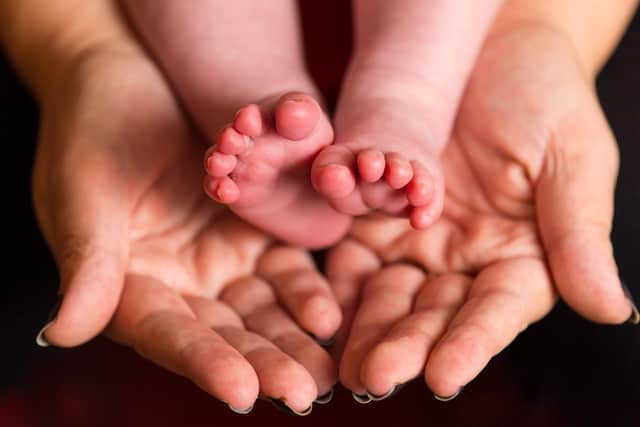Portsmouth sees a surge in the number of babies delivered through caesarean
and live on Freeview channel 276
NHS England recently told hospitals to stop using caesarean section rates as performance targets as they might be ‘clinically inappropriate and unsafe’ for patients – though these figures pre-date the move.
Of the 725 births recorded in Portsmouth in 2020-21 in Office for Health Improvement and Disparities figures, 33.6 per cent were delivered by C-section.


Advertisement
Hide AdAdvertisement
Hide AdThat was up from 31.2 per cent the year before, and the highest rate since records began in 2014-15.
Across England, 32.5 per cent of births in England in 2020-21 were delivered by caesarean section – up from 30.1 per cent in 2019-20.
This rate was also a record high.
Dr Teresa Kelly, consultant obstetrician and spokesperson for The Royal College of Obstetricians and Gynaecologists, said the national increase is due to a higher number of complex births – partly caused by the rises in both obesity rates and the average age of women giving birth.
She said both vaginal and caesarean births carry certain benefits and risks, but that a woman's informed choice should always be respected and supported.
Advertisement
Hide AdAdvertisement
Hide AdDr Kelly added: ‘Childbirth is unpredictable and complications can and do arise.
‘The safety and care of women during labour and birth and the safe arrival of their babies should always be the main focus, and medical intervention in some cases can be lifesaving.’
The news followed a recent review which found around 200 babies and nine mothers at Shrewsbury and Telford Hospital NHS Trust could have survived if it had provided better care while the trust aimed to preserve its low caesarean rate.
